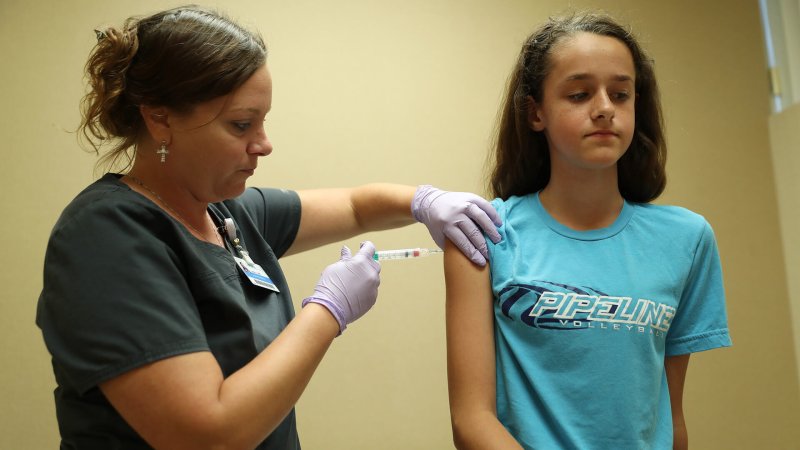The human papillomavirus (HPV) vaccine reduced cervical cancer cases by 87% among women in the U.K. who received the vaccine when they were 12 or 13 years old, according to a new study.
These new findings are based on follow-up data from a vaccination program that began in the U.K. in 2008. The strains of human papillomavirus that are transmitted through sexual contact are extremely common around the world, and most people are infected at some point in their lives, typically soon after becoming sexually active, according to The World Health Organization (WHO).
Many HPV infections clear up on their own without causing issues, but some infections can lead to cervical cancer. In fact, nearly all cervical cancer cases around the world are due to an infection with HPV, according to the WHO.
“Although previous studies have shown the usefulness of HPV vaccination in preventing HPV infection in England, direct evidence on cervical cancer prevention was limited,” senior author Peter Sasieni, a professor in the King’s College London said in the statement. Early modeling had predicted that HPV vaccination would reduce cervical cancer rates substantially in young women, he said.
“The observed impact is even greater than the models predicted,” he added.































